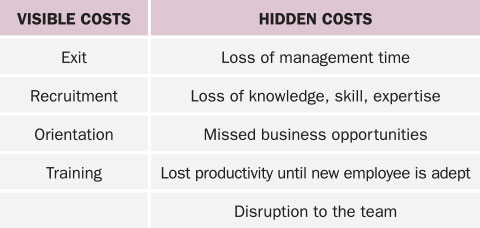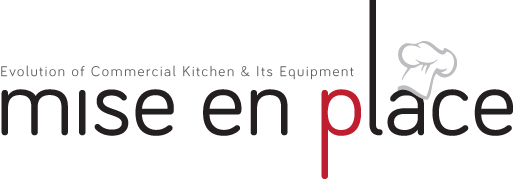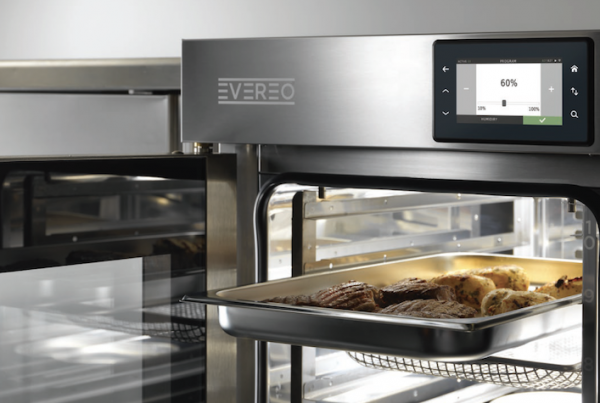
You walk into your favourite cafe, enjoy a good meal and a satisfactory level of service and you make a mental note to return. Two weeks down the road, something seems to be different – the food is not as you remembered, wait staff whose face you don’t recall seeing previously and they aren’t that efficient either. Familiar? Labour has and is always the bane of any industry but particularly so for hospitality and foodservice sectors. It is a true reflection of United Kingdom’s industry where 365, 675 people leave annually. Not just in the UK but it is a global problem. Other wise, why would restaurants in China use robots to serve up food and service drones are also being developed in Singapore to ease the need for manual labour.

According to people 1st, it lies in the type of people F&B businesses hire:
• 34% of hospitality workforce are under the age of 25
• 66% waiting staff and 60% bar stuff are under 25
• 41% waiting staff and 25% bar staff are full-time students
• 6% do it as a secondary job
Yet, people 1st estimates that by the year 2020, there will be insufficient young people to meet demand of the hospitality and tourism sector. In recent years, migrant workers have become the go-to solution. However, many business owners do not have time to train them or simply expect them to learn on-the-job. Language barrier is another problem; leading to inability to engage with customers and many times customers end up having a less than satisfactory dining experience. Customers aside, high turnover affects businesses both visibly and less visibly.

How can business owners respond to this issue of manpower and retaining people who are integral to your business’ sustainability? Here are some suggestions that you can think about to hire and retain workers well.
 AGE IS JUST A NUMBER
AGE IS JUST A NUMBER
To a certain extent, that is. Conventionally, retirement ages hover around 55 years old but many retirees are still physically fit and would want to do some work. Many governments have since increased the age limit and in United Kingdom, mandatory retirement age have been phased out. Having said that, it is of course employer’s discretion as work in F&B can be physical in nature and of long hours. The Age Smar t Employer Awards program spoke to some employers on the reasons why they would employ mature workers.
• They are less transient. The US Bureau of Labor statistics found that the median tenure of workers ages 55-64 in all industries was more than 3 times for workers ages 25-34.
• Matured workers tend to understand work as something greater than themselves. They can become connected to the business’ mission which ultimately reflects on their work performance and ethics.
• “We have older servers who do really well because they have great character and make it a good experience, and young people who don’t have the personality to win over guests”(Jeremy Merrin, Havana Central)

RE-DESIGNING ROLES
One of the factors contributing to staffing problems is the short-term positions. Although par t-time jobs can work for both employees and employer, it also creates a void of uncertainty. Most people are able to handle more than one task at different times so think of how you can introduce multi-skilling thereby creating full-time positions.
This can help improve retention rates as these jobs can give employees a better income while the business keeps its existing skilled workforce and redirects training budgets to upgrading of skills. For example, revise contracts to permanent basis but even it out such as putting in more work during peak periods and less other wise. It gives some sense of security to employees and thus motivating them to stay.

THE WORKPLACE AURA
Take some time to observe your team – is there an air of friendliness, openness, a time for laughter or genuine appreciation and respect for each other? Simple really, happy employees feel a sense of ownership. And it starts from the top. Age Smart Employer found that many of its inter viewed businesses frequently spoke about being a family. To treat each employee as an individual, to understand their strengths, interests and needs and provide them a role as close as possible to their true self. On top of the usual employee benefits; celebrate special occasions, recognise their achievements and compliment them.
Accord the team trust (again, this must be done with great observation and wisdom); for example Peter Pan Donut and Pastry Shop allows employees to swap shifts without prior permission. “I told them I don’t care who works as long as someone shows up”; said owner Donna Siafakas.
Although we can automate many areas, it is still essentially a people-industry and the human touch is important to keep it alive. Think about it, even if robots ran the place, you’d still need people to operate the machines; at the very least. And surely you want to keep the good ones?










